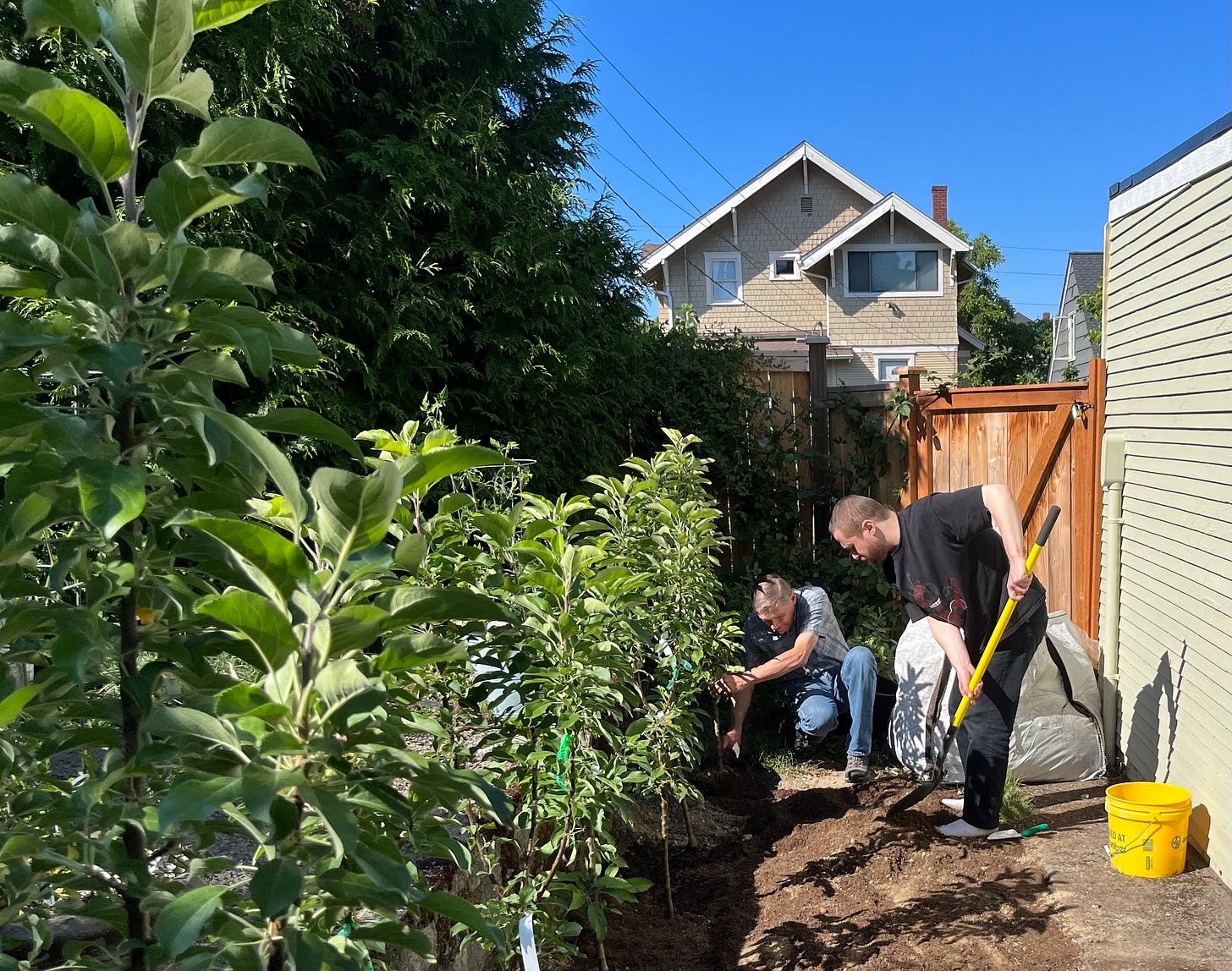My apologies for my long absence here at Substack. I’ve been slowly working on a post related to my fractured memoir, but it has not been my focus during the past 3 months. Instead, I’d been writing updates to friends and family for our Mealtrain website. I posted the last one yesterday. They deal with my grief at the loss of my beloved partner, my son’s journey, etc. If you are interested in reading them, just send me an email, bnaidus@uw.edu, but I just wanted to jump in here for minute, say “hello,” and share something that I thought might be relevant to the topics I normally focus on.
Yesterday evening, a beloved former student who is a devoted member of my meditation group and works in the cyber security world, asked me a question that made me a bit incredulous.
He wanted to know, if I felt “lazy,” couldn’t I just have an artificial intelligence app write things for me. I was almost insulted by this question. I knew that he meant it with all innocence, not knowing what unique chemistry runs through the nervous system when one creates. I tried to explain that to him, as briefly as I could, that there’s a deep healing magic that occurs when the words flow. That there’s no laziness that arrives because my intentions for writing have never invoked laziness. I actually don’t approve of the word, “lazy,” because it implies all sorts of things that are attached to “grind culture.” If you’re not familiar with the latter term, take a look at Tricia Hersey’s book, “Rest as Resistance” or follow her on “The Nap Ministry” on Instagram. Ms. Hersey makes it clear in so many ways, sometimes redundantly, that capitalism has colonized our behaviors and minds, making us feel guilty if we’re not productive every damn minute. But as I have learned repeatedly in this life of almost 7 decades, we need to pause and space out in the quantum realms if we are going to transmit anything of value to ourselves and others.
His question made me wonder about the gap between those who have found or are trying to find their voices through their muses and those who haven’t. Some of us were encouraged when young to take risks, make mistakes, play around, and eventually glide into a creative practice of some sort; others did not have the mentorship, the inclination, or the spaciousness in mind and body to go there. That divide feels as perilous as any in this world of increasing polarization. It seems deeply important to help others find their ways to creative practices, whatever they might be from doodling in the margins of a notebook (hopefully there are people still using them) to inventing trickster strategies that shift the status quo from extractivism to regeneration.
Without a deep sense about why people enjoy or are committed to writing, researching, making images, dancing new steps, designing new concepts, and surrendering to their creative impulses, and how those behaviors benefit us all, we risk so many things - and it’s been apparent for a long time that we are living in a society that only wants art as a distraction or a status object, rather than as something that provokes thought, allows for feelings to flow, that documents the invisible, that critiques the status quo, etc. Art with any of those motivations is seen as dangerous and an increasingly authoritarian society will do everything to shut down those impulses.
We need to remind folks who are in the tech world to turn their apps off and get back into the muck of creating with their whole selves. It’s a medicine that is a necessity in these times.
The photo below was taken at the ceremony celebrating my late beloved partner, Dr. Bob Spivey (obituary is here: https://earthfuneral.com/obituary/bob-spivey-04282023/). Our son, Sam, and our dear friend, Richard, are planting the last of 7 columnar apple trees in the nutrient-rich soil that Bob’s body created during the Bardo. Just another example of the beauty that rises out of the muck.



